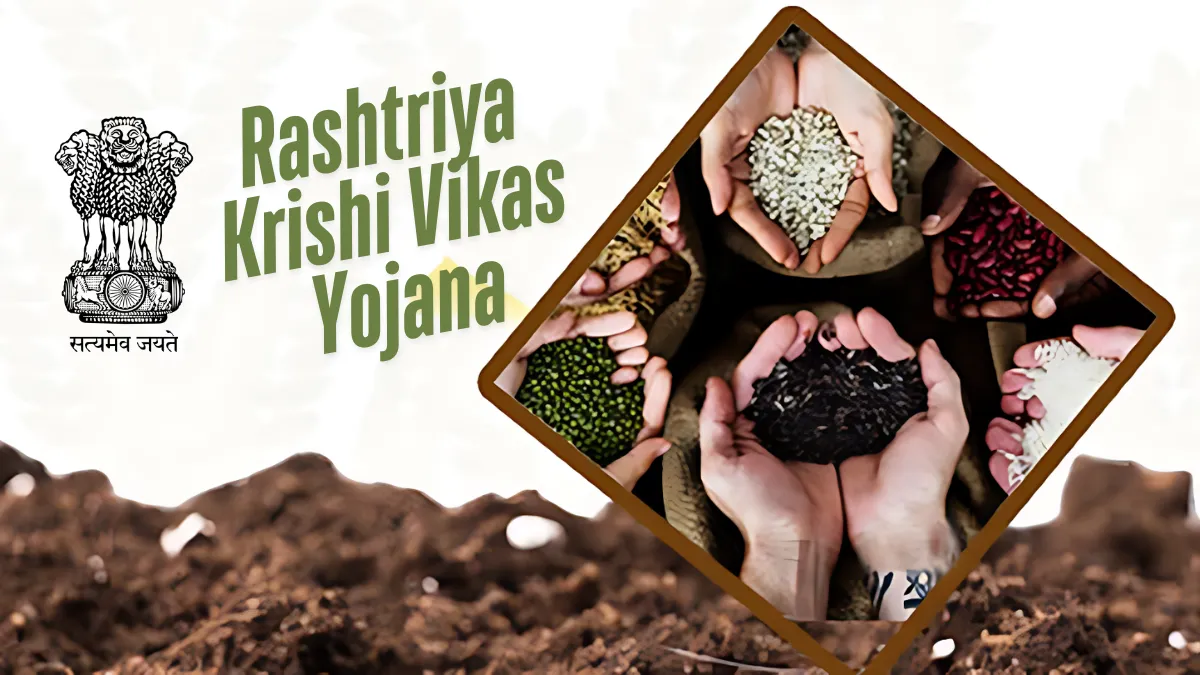RKVY Punjab, Empowering Farmers and Boosting Agricultural Development
The agricultural sector has long been the backbone of India’s economy, with states like Punjab playing a pivotal role in ensuring food security. To further strengthen this sector, the Government of India introduced the Rashtriya Krishi Vikas Yojana (RKVY) in 2007. This centrally sponsored scheme aims to incentivize states to enhance public investment in agriculture and allied sectors.
Punjab, known as the “Granary of India,” has been a significant beneficiary of this initiative, implementing various projects under the Rashtriya Krishi Vikas Yojana to boost agricultural productivity and improve farmers’ livelihoods.
Overview of Rashtriya Krishi Vikas Yojana (RKVY)
The RKVY was launched with the primary objective of achieving a 4% annual growth in the agriculture sector during the 11th Five Year Plan (2007–2012). It sought to provide states with the autonomy to plan and execute agricultural projects tailored to their specific needs, considering local agro-climatic conditions, available resources, and cropping patterns. By doing so, the scheme aimed to ensure a holistic development of agriculture and its allied sectors, thereby maximizing farmers’ returns.
Over the years, RKVY has undergone several modifications to address emerging challenges in the agricultural sector. In 2017, it was rebranded as RKVY-RAFTAAR (Remunerative Approaches for Agriculture and Allied Sector Rejuvenation) to emphasize remunerative approaches for rejuvenating agriculture and allied sectors.
This revamped scheme focused on making farming a remunerative economic activity by strengthening the farmer’s effort, risk mitigation, and promoting agribusiness entrepreneurship.
Punjab’s Implementation of RKVY
Punjab agricultural landscape has been significantly shaped by the Green Revolution, leading to substantial increases in food grain production. However, this intensive farming has also resulted in challenges such as soil degradation, water scarcity, and reduced crop diversity.
Recognizing these issues, Punjab has effectively leveraged the RKVY to implement projects aimed at sustainable agricultural practices, crop diversification, and enhancing farmers’ income.

Key Initiatives under RKVY in Punjab
- Crop Diversification To address the over-reliance on water-intensive crops like paddy, Punjab has promoted crop diversification under the RKVY. Farmers are encouraged to cultivate alternative crops such as pulses, oilseeds, and coarse cereals. This shift not only conserves water but also improves soil health and provides farmers with better income opportunities.
- Promotion of Organic Farming Recognizing the growing demand for organic produce, Punjab has initiated programs to promote organic farming. Under the RKVY, farmers receive training and support to adopt organic farming practices, reducing chemical inputs and enhancing soil fertility. This transition not only caters to health-conscious consumers but also fetches premium prices for farmers.
- Strengthening Agricultural Infrastructure Infrastructure development is crucial for agricultural growth. Punjab has utilized RKVY funds to construct and upgrade irrigation facilities, storage warehouses, and rural roads. Improved infrastructure ensures timely access to markets, reduces post-harvest losses, and enhances the overall efficiency of the agricultural supply chain.
- Capacity Building and Training Empowering farmers with knowledge and skills is vital for sustainable agriculture. Punjab has organized numerous training programs under the RKVY to educate farmers on modern farming techniques, efficient water management, and integrated pest management. These initiatives have equipped farmers to adopt innovative practices, leading to increased productivity and profitability.
- Promotion of Agribusiness Incubation To foster innovation and entrepreneurship in agriculture, Punjab established the Punjab Agri Business Incubator (PABI) under the RKVY-RAFTAAR scheme. PABI supports agripreneurs by providing mentorship, funding, and infrastructure to develop and scale innovative agricultural solutions. This initiative has led to the emergence of several successful agribusiness startups in the state.
Also Read: Why Punjab is called Granary of India’s role in Agriculture
Impact of RKVY on Punjab Agriculture
The implementation of RKVY in Punjab has yielded significant positive outcomes:
- Enhanced Productivity: The adoption of modern farming techniques and diversified cropping patterns has led to increased agricultural productivity.
- Improved Farmer Incomes: By shifting to high-value crops and adopting sustainable practices, farmers have experienced better income levels, contributing to improved livelihoods.
- Sustainable Practices: The emphasis on organic farming and efficient resource management has promoted environmental sustainability, ensuring the long-term health of Punjab agricultural eco system.
- Entrepreneurial Growth: The focus on agribusiness incubation has nurtured a culture of innovation, leading to the establishment of new ventures that add value to the agricultural sector.
Also Read: How Punjab Farmers Subsidies Benefits and Government Aid
Challenges and the Way Forward
Despite the successes, Punjab agricultural sector continues to face challenges such as depleting groundwater levels, fragmented landholdings, and the need for technological advancements. To address these issues, a multi-faceted approach is essential:
- Water Conservation: Implementing advanced irrigation techniques like drip and sprinkler systems can significantly reduce water usage. Additionally, promoting crops that require less water can alleviate pressure on groundwater
Sources: paupabiraftaar.co.in, Press Information Bureau, agriwelfare.gov.in, en.wikipedia.org,

